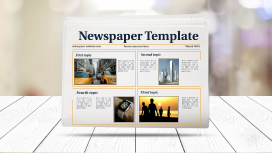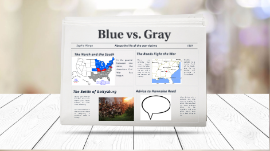Magazine & Newspaper
Transcript: This guide in the library can show us how to find journals, magazines and newspapers in most libraries Journals and magazines are called periodicals, which means that they are publications issued 'periodically', such as weekly, monthly, quarterly. A broader term (serials) is used when referring to periodicals (i.e. journals and magazines), newspapers and annuals. Serials are available online, in print, or in microform nowadays in the most of libraries around the world. If you need additional assistance in finding periodicals, do not hesitate to ask staff at the reference desk at the Library. There are a conventional way to locate newspapers and magazines. All publications are shelved alphabetically by title, except when they are published annually, in which case they have a call number and are shelved with general books. Another important service is that If you need to know whether the library has a particular journal or newspaper, and whether that serial is available online, in print, or in microform, you will have to search in the library catalog. Locating Journals, Magazines and Newspapers A library is a place in which literary and artistic materials, such as books, periodicals, newspapers, pamphlets, prints, records, and tapes, are kept for reading, reference, or lending. Libraries collects sources of information in its various forms (print and non-print) by different ways and manage these sources (cataloguing, classification, arrangement) and present these sources to the beneficiary of the library (readers, pioneers, researchers) by easiest ways through a number of library services such as (circulation, photography) through a number of workers and specialists in the field of libraries and information. As we all know that locating a book or a magazine on a library will take a very long time if it isn’t following any protocols or what called by the library terms as cataloging. Steps to locate a Magazine & Newspaper in YUC library Library catalog Catalogue is used for: 1. Find out what items the library owns on our topic. 2. Find where a specific item is located in the library. 3. Find out what issues of a periodical the library owns. 4. Placing a hold, recall or paging request. 1. Power search (Advanced search). A library catalog (or library catalogue) is a register of all bibliographic items found in a library or group of libraries, such as a network of libraries at several locations. A bibliographic item can be any information entity (e.g., books, computer files, graphics, regalia, cartographic materials, etc.), that is considered library material (e.g., a single novel in an anthology), or a group of library materials (e.g. a trilogy), or linked from the catalog (e.g., a webpage) as far as it is relevant to the catalog and to the users of the library. The card catalog was a familiar sight to library users for generations, but it has been effectively replaced by the online public access catalog (OPAC). Some still refer to the online catalog as a "card catalog." Some libraries with OPAC access still have card catalogs on site, but these are now strictly a secondary resource and are hardly updated. Some libraries have eliminated their card catalog in favor of the OPAC for the purpose of saving space for other use, such as additional shelving. For example: in YUC catalog there are two search options: 2. Quick search. Step.2: Reading Area The library offers a comfortable seating area contains a sofa next to the magazine and newspaper holder, which offers to readers the possibility to change the newspaper or magazine easily without any long walk or disturb. YUC library – Learning gate - (n.d.) retrieved April 5, 2014, from http://www.yuc.edu.sa/index.php/library-homepage1 Libraries and their importance in society (n.d) retrieved April 20, 2014, from http://www.publicadministration.net/resources/libraries-and-their-importance-in-society/ References Even if you don’t have much time to read, you can enjoy newspapers. Newspaper publishers do their best to make their papers appealing and easy to read. Why? Because it makes good business sense. We readers, after all, are busy people with limited time. We also are the ones who buy the newspaper and the products and services advertised in a newspaper’s pages. When you invest time and effort in learning how to read a newspaper, you can significantly improve your reading skills, vocabulary, general and community knowledge, as well as improve communications with family, coworkers, and friends. Reading a newspaper is fun, and it provides immediate benefits to readers. What are some of the reasons people read newspapers? • To be informed citizens about local, national and world news and events • To contribute something informative to a conversation • For specific reasons, such as finding a job or hiring a service • For personal enrichment and fun! There’s two main ways newspapers are published: print (newsstand copy) and electronic (e- newspapers). Most large print

















